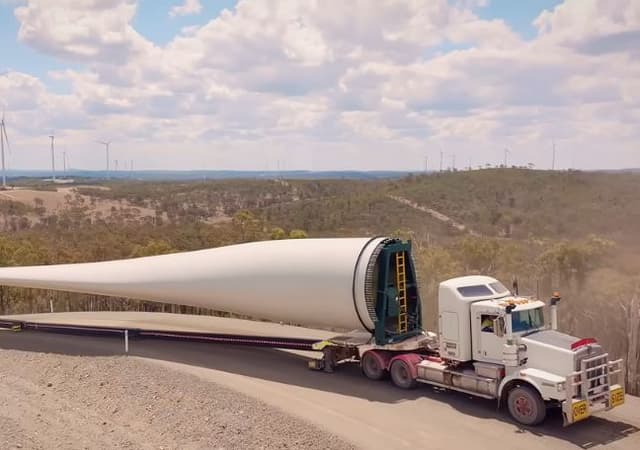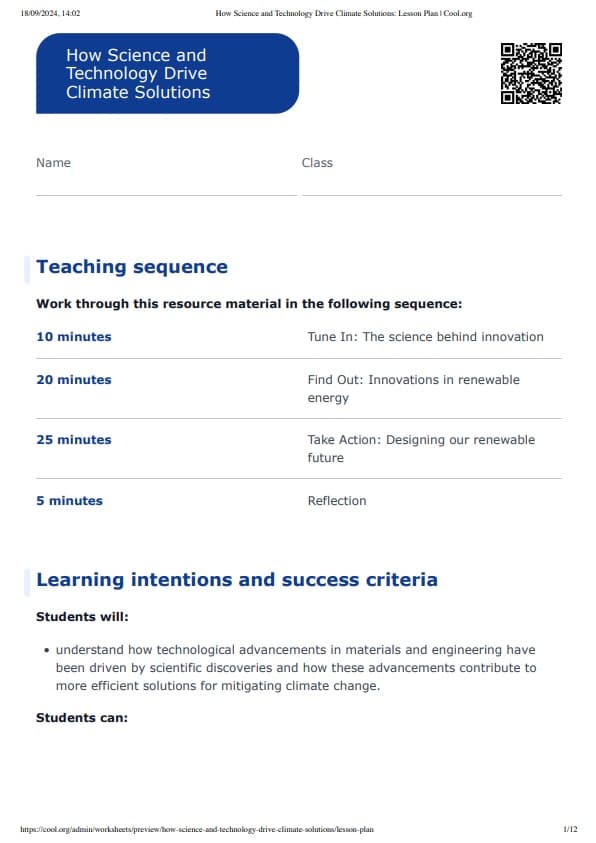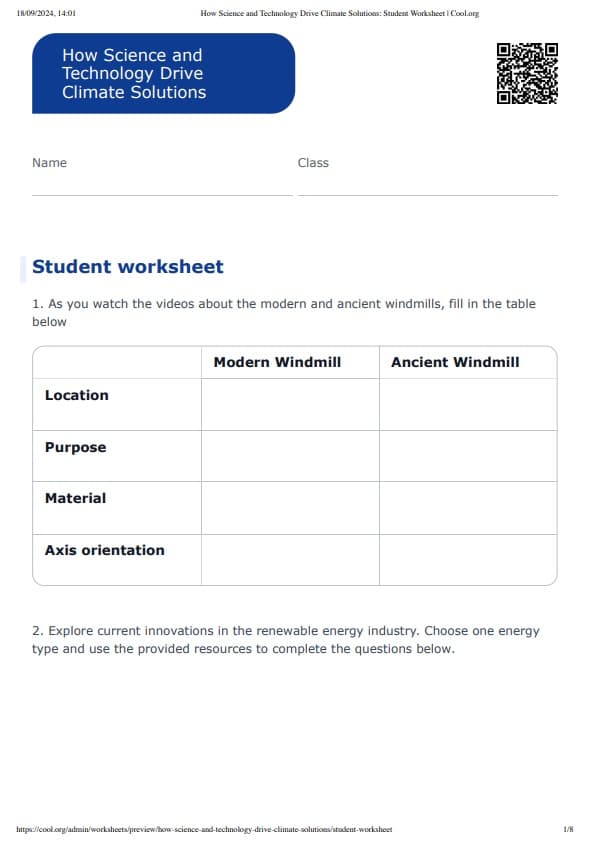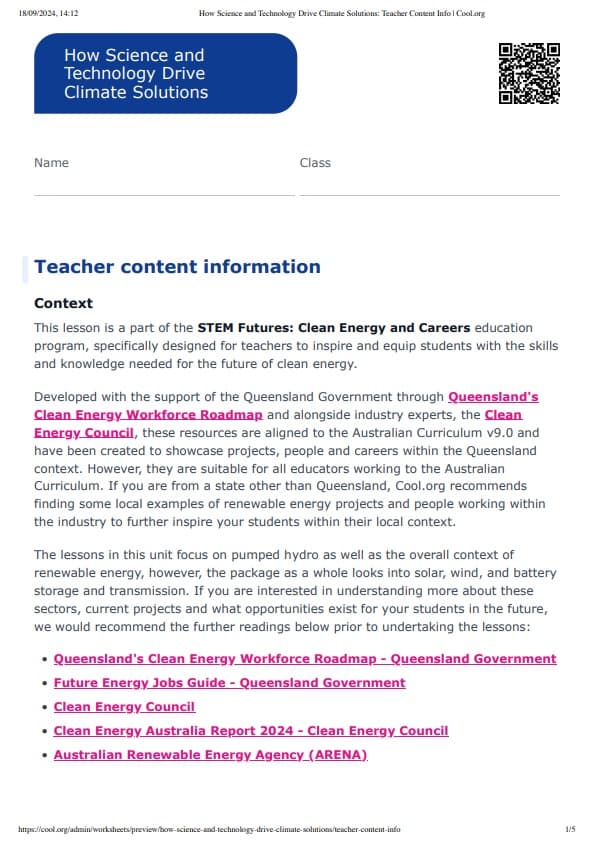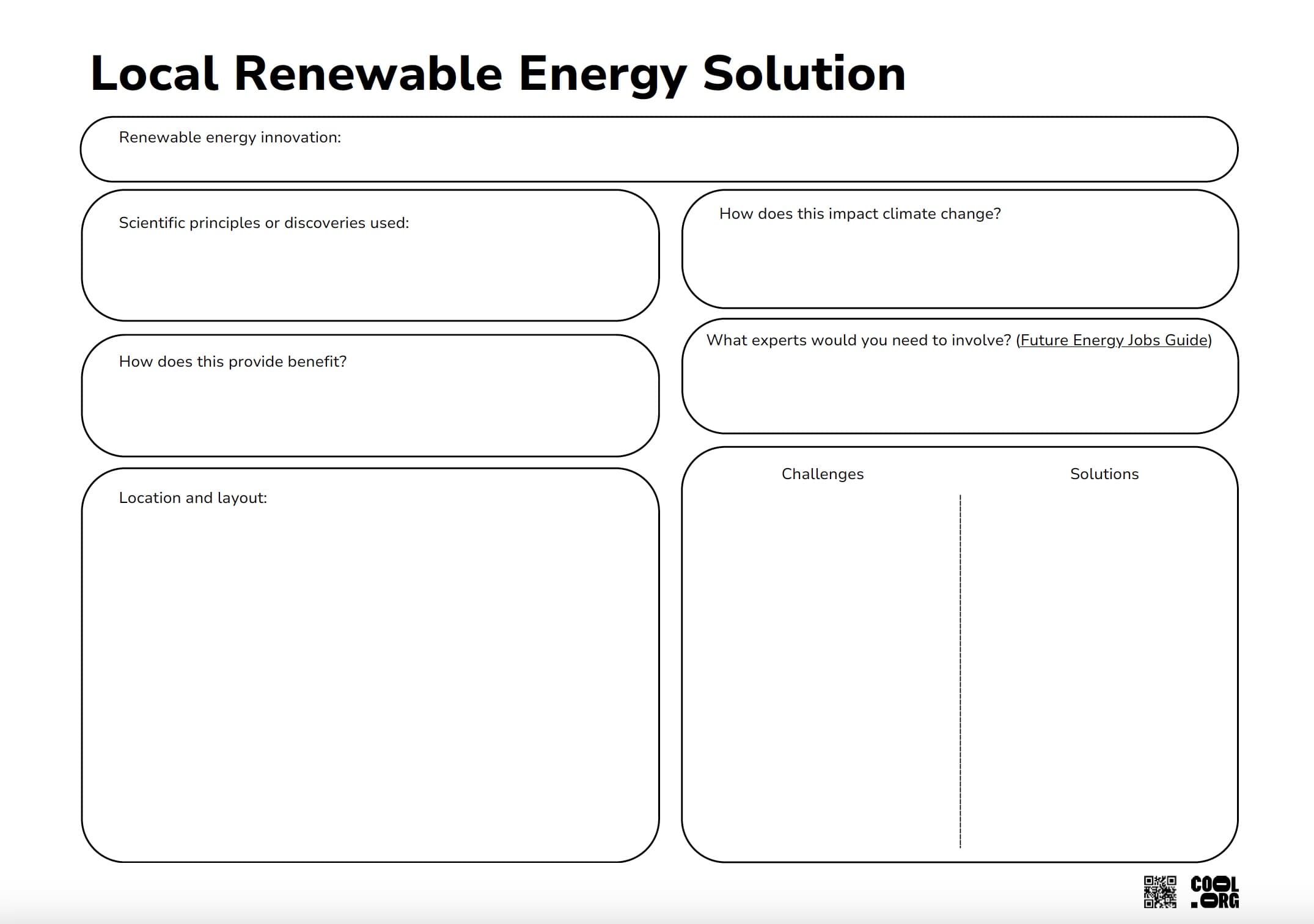Learning intentions:
Students will...
- understand how technological advancements in materials and engineering have been driven by scientific discoveries and how these advancements contribute to more efficient solutions for mitigating climate change.
Success criteria:
Students can...
- explain how the development of new materials, such as advanced solar cells and wind turbine components, has improved the efficiency of renewable energy technologies
- analyse specific renewable energy case studies to identify the key scientific and technological advancements that have contributed to climate change solutions
- describe the role of science in driving innovation and how these innovations lead to potential careers in the energy sector
- design a proposal that applies the renewable energy innovation they have researched to a local renewable energy project.
